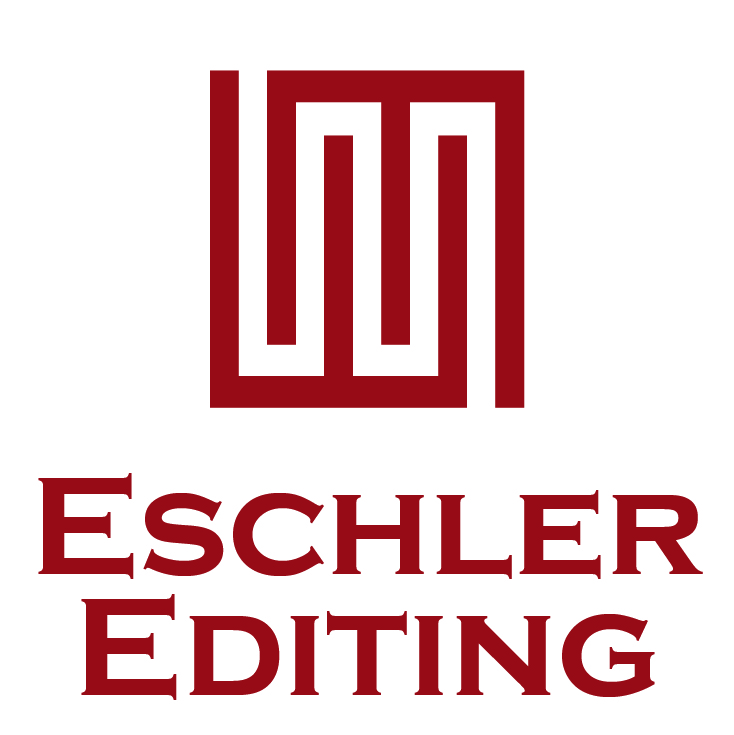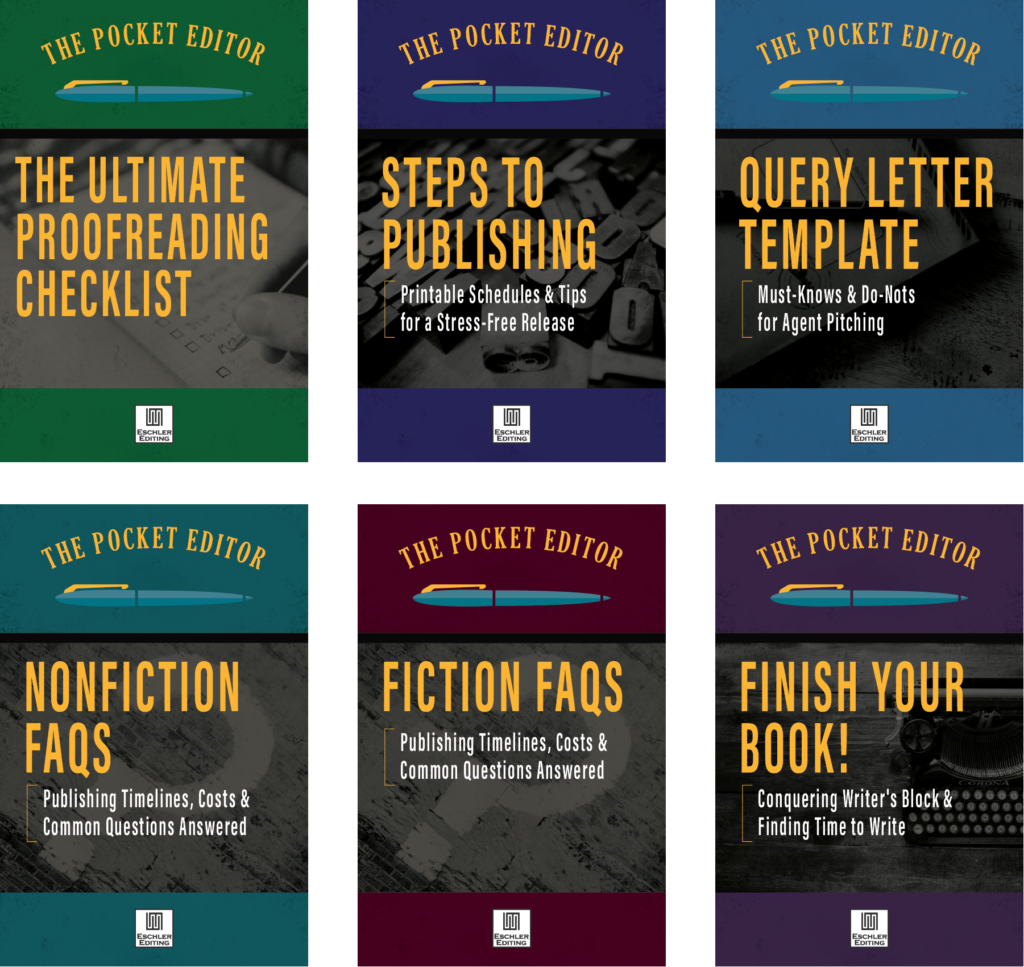Delivering—and Receiving—Negative Feedback in a Constructive Way
by Sabine Berlin with Sandi Larsen
Constructive feedback (often seen in the writer’s head as negative feedback) is a hard pill to swallow. Nobody wants to be told the story they’ve devoted hours, months, even years toward isn’t perfect. On the other hand, most people don’t like telling someone their writing has problems. If you try too hard to spare someone’s feelings, you could be doing them a disservice, and yet if you completely crush their hopes and dreams, you may be denying others the chance to read a story that could have gone from okay to great based on your feedback. So what’s a reader to do? It’s all about the give and take. We spoke to some of the awesome editors here at Eschler Editing and compiled this list to help make your next critique session a little more successful.
How to Take Feedback
You’ve already made yourself vulnerable by putting your work out there for someone else to read. But what do you do when the shining praise you were hoping for comes back as a red-ink massacre? Getting negative feedback is never fun, but most of the time it’s the best way to take your writing to the next level. Here are five steps to help you take feedback like a pro:
- Chocolate cake. No, seriously. Being told your baby isn’t good enough hurts. It’s okay to wallow in a little chocolate cake to help you get through that.
- Okay, now that you’ve had your cake, it’s time to turn off your emotional brain and be a computer. Become Vulcan. Don’t assume that just because someone said something isn’t working they think you should never write again. Look at the advice in a logical manner.
- Give yourself 10 percent veto rights. Plan on taking at least 90 percent of feedback constructively, but feel free to allow yourself 10 percent you get to hold strong to (see tip 5 for exclusions to this rule). You don’t have to change every single thing someone tells you to, but you are definitely too close to your story to not give feedback serious consideration.
- Look at who’s giving you the feedback. Have you ever watched a cringe-worthy singer on a competition show proclaim they’ve been told how wonderful they are? They probably aren’t lying. If you have only ever gotten positive feedback and then someone comes forward and tells you your story has problems, your first inclination might be to dismiss that advice. But before you do, look to see where previous positive feedback has come from. If the only people who have read your story are your mom and best friend, you may have to consider that they might have been trying to spare your feelings or are just as close to your work as you are.
- If you’ve hired an editor, communicate clearly what kind of editing service you’re expecting. Make sure they understand whether you want a copyedit or a developmental edit. Once you’ve been given feedback, decide if there is something to this advice. If you have paid a professional to edit your story, know that they are going to give you their best advice to fix it. They are not just looking for things to tear you down. Additionally, if you send your story out to a group of people and you get a comment more than once, that’s a good sign there really is a problem, and you need to accept it and be proactive in coming up with a solution.
How to Give Feedback
Now that you know how to take feedback like a pro, it’s time to practice giving it. If you’ve asked for feedback from another writer, they are most likely going to ask for yours. Here are our five best tips to make negative feedback a positive experience:
- What are they looking for? Before you critique or edit a manuscript, ask the author what they hope to gain from your feedback. Maybe they have edited it to the ground and now all they care about are periods and commas. Maybe they want to find places where they can cut out words and not kill the story. Maybe they just want you to tell them what you liked. Knowing what they expect can be helpful as you begin to edit.
- Think “sandwich.” No, this isn’t just here to counter the effects of the chocolate cake! It’s important to not only give them negative (although potentially useful) feedback. Instead, try to sandwich it between two positive comments. Always start with something positive that you see in their writing or story before you tell them what they need to fix, and then give them a positive benefit on why taking your advice will make their story stronger (i.e., I really like X character and his role in the story. I would love to see him come out of his shell and really stand up for himself against his boss. I can really see him becoming a memorable character with this sort of growth arc applied to him). You need to sell them on it.
- Explain your editing style in a brief tutorial and how they can use it to strengthen their book. I edit like Orson Scott Card taught me by asking three questions: “Huh?” “Yeah, right!” and “So what?” (Huh?=I don’t understand what is going on, or I’m confused about what you are trying to say; Yeah, right!=I don’t believe this in the context of the world this book takes place in; So what?=I am unsure why this information is relevant to the story, or I’m losing interest in the story.) These are the things I look for when going through a manuscript, but if you only saw those things without any context, they might seem a little harsh. I always make sure my manuscript edits are accompanied by a style guide so the author can get into my frame of mind when reading the edits. Other editors may have a different style (such as color-coding, explanatory notes, or asking a lot of focused questions the author must address).
- Don’t just tell them it’s wrong or doesn’t work. There’s a fine line here. If someone has asked or paid you to edit something, they probably don’t see the problems themselves and are hoping for feedback on how to fix things. Try to offer helpful suggestions when you can. However, you also don’t want to make their story yours. If you tell them exactly what they need to do to fix every little thing, in the end, who really wrote the story? I like to find a middle ground. Sometimes I expand on why things didn’t work and give possible solutions. Sometimes I just say this isn’t working for these reasons, and rather than offer solutions, I offer to brainstorm with the author; this allows them to ask questions and get my take on things they may agree with but are unsure how to fix.
- Make sure they know when something is a personal opinion/preference versus an industry-accepted convention that will stop publishers or agents from picking the book up or that will be a turnoff to that genre’s readers. If they’re starting their first chapter with backstory, you can cite several articles on why this should not be done. If their main character uses the word “fetch” way too much, that’s opinion. It’s okay to have opinions, but you should always let the author know what may keep them from getting published versus what just really annoyed you (keeping in mind that if it annoys you, it might annoy another reader at some point).
Feedback is important. It’s how an author learns and grows. Even best-selling authors seek feedback to make their manuscripts stronger. They say you can’t edit your own story—and that’s absolutely true. Having another set of eyes (or five sets) is imperative to your writing. Don’t think of negative feedback as a sign you should quit but as a powerful tool that can help you become a more effective writer. Feedback is an asset for the person on the receiving end. If you remember to give feedback with kindness and sincerity and accept it without being defensive, you just may find your writing career reaching new heights.
Do This Now
- Write down two or three ways you would like to hear constructive feedback so you can help your readers know what you’re looking for.
- Decide you’re going to look at feedback as something meant to help, not harm.
- Find some beta readers and editors whose opinions you trust.
Feeling like you might be ready to take some professional feedback? Shoot us an email for a free consultation and editing samples.







Great ideas, and I’ll definitely take this into consideration next time I’m giving or getting feedback.
Thanks for this article! I agree it’s really important to know what kind of feedback you need and to ask for it specifically. I find that as I get to know my critique partners’ styles, it’s easier to take their comments with a grain of salt.